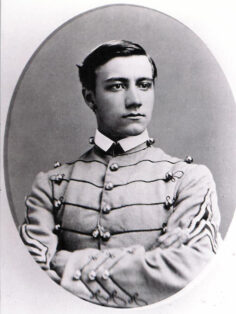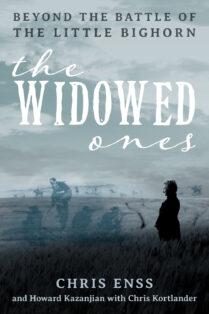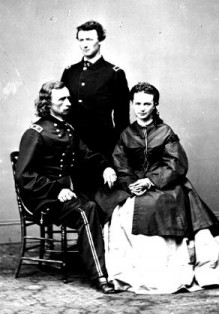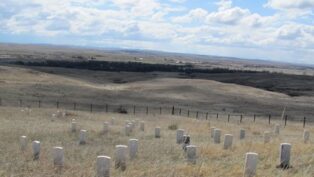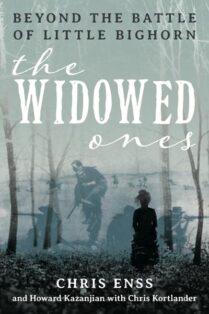Enter now to win a copy of
Along Came a Cowgirl:
Daring and Iconic Women of the Rodeo and Wild West Shows
“Coming Soon!” read the billboards, “World Championship Rodeo! $10,000 in cash prizes! Biggest, wildest, most thrilling rodeo ever held!”
“What’s a rodeo?” inquired the lady in the large, wide-brimmed hat decorated with plumes and flowers.
“Darned if I know,” replied the woman in the puffed blouse and fluted skirt. “Let’s go and find out.”
Within the first five minutes, they got more thrills than they had ever had in their lives before. They saw a cowboy leap from the back of a running horse to the hurricane deck of a galloping steer – a great, wild brute fresh from the Great Plains, weighing nine hundred pounds and every pound full of fight. The steers seemed to be the meanest, most devilish animals that ever walked on four feet, but they were nothing compared to the outlaw horses the women watched trying to throw riders.
This attraction called a “rodeo” was no place for a weakling. It seemed, indeed, to be a man’s game, a red-blooded, two-fisted sort of a game where you would never expect to find a woman. However, the ladies were there, riding with the best of them. Outlaw horses or wild steers couldn’t scare those females from the cattle country.
For more than six years I’ve been writing about those brave, talented ladies in the Iconic Cowgirls column for this magazine. After so many articles and with the enormous interest in women in the rodeo sports, it seemed fitting to pen a book about those women whose names resounded in rodeo arenas across the nation in the early twentieth century. Along Came a Cowgirl: Daring and Iconic Women of Rodeos and Wild West Shows highlights the ladies who ventured into the male dominated rodeo and trick riding world, defying all expectations.
In the beginning, rodeo events were confined to men, but it wasn’t long after the exhibitions began to grow in popularity that women joined the festivities. All they needed to do to compete was prove themselves as fearless as the men, and they did.
The origins of the rodeo can be traced to the early days of the American cattle industry. Once or twice each year, cowboys rounded up cattle on the ranges and drove the herds to various marketing centers. There, in celebration of the roundups, they staged informal competitions designed to exhibit the skills of their trade. The first formal rodeo contest was held in Cheyenne in 1872; the first competition offering cash prizes was staged in Pecos, Texas, on July 4, 1883, and the first such event charging admission took place in Prescott, Arizona Territory, on July 4, 1888.
The four events contested at most of the early rodeos were saddle bronco riding, bareback bronco riding, steer wrestling, and calf roping. Other events featured included exhibitions of trick riding, shooting, and simple lassoing, as well as a number of humorous contests such as attempts to milk a wild cow or to saddle a bucking bronco.
Women began competing in rodeos as early as 1890. Many women, west of the Mississippi, had been roping cattle and riding broncos, along with their male counterparts, since settling in the wild frontier. It was their skill in the saddle that enabled them to find places in rodeos and performing in Wild West shows.
Wild West shows were touring the country eight years before public rodeos came into being. One of the first such shows, and certainly the most well-known, was Buffalo Bill Cody’s Wild West. Organized in 1883 by William F. Cody, Buffalo Bill’s show was a leading source of entertainment and education for more than thirty years. During that time of worldwide travel and countless presentations, a variety of performers captured the hearts and imaginations of fans everywhere. Among those popular entertainers were courageous women bronc riders, calf ropers, trick riders and trick shooters.
The popularity of Buffalo Bill Cody’s Wild West show prompted other businessmen to produce their own programs. Among some of the other western themed exhibitions were the 101 Ranch Wild West show, Pawnee Bill’s Wild West, Colonel Cummins’ Wild West Indian Congress and Rough Riders of the World, and Diamond Dick’s Congress of World’s Western Champions. Cowgirls seeking to earn their living riding wild horses, twirling lassos, and wrestling steers signed on with the various Wild West shows. Many of those cowgirls were given titles that reflected the acts in which they excelled. Posters and flyers referring to the shows’ stars as “Champion Lady Bronc Rider,” “Best Relay Race Rider,” or “All-Around Champion Cowgirl of the World” were displayed in stores, railroad depots, restaurants, and other such establishments from coast to coast. Those labels attracted patrons, but, more often than not, the titles given to the cowgirls were unofficial.
Iconic cowgirls Fox Hastings, Tillie Baldwin, and Mabel Strickland were all billed at the same time as “Champion Lady Bulldogger.” Mildred Douglas, Goldie St. Clair, and Prairie Rose Henderson were likewise labeled as the “Lady Bronc Riding Champion.” Florence LaDue, Hazel Hickey Moore, and Bonnie Gray were all celebrated in the same time period as “Best Trick Roper.” All the women were exceptional at their given talent, and all were proclaimed as top in their fields by the directors of the Wild West shows in which they rode. It wasn’t until women participated in rodeo events and won that they could officially be recognized as “champion,” or “best of…” in whatever category they were competing.
Lucille Mulhall was one of the first women superstars of the rodeo and Wild West shows. By the time she was eighteen, she had won numerous bronc riding and steer roping honors. In 1904, she won a gold medal for steer roping at the Cattle Convention Rodeo in Fort Worth. The three steers she roped in the show were picked out of an immense herd of wild and unruly beasts. She roped and tied the first one at one minute forty-five seconds. She cut that time down to one minute and eleven seconds with her second steer, and she dropped her third one in the remarkable time of forty seconds. Her total time for the three was three minutes and thirty-six seconds, several seconds faster than the nearest cowboy against whom she was competing. After her win in Texas, she was hailed as the “Queen of the Range.”
Mulhall set the stage for other daring cowgirls to follow. There was Blanche McGaughey, a bronc buster for the 101 Ranch Wild West Show who consistently won top honors at the Pendleton and Cheyenne rodeos and was recognized as the champion woman bronc buster of the northwest in 1912 and 1913; Pearl Biron, a trick roper who could flick the ashes off the cigarette of a fellow performer or a flag off the head of her horse; relay racing sensation Donna Card Glover who won multiple trophies at rodeos across the country, including the Yankee Stadium Rodeo in New York; and Lulu Parr, “Champion Lady Bucking Horse Rider of the World” who not only excelled at riding outlaw horses, but buffalos, too.
Along Came a Cowgirl: Daring and Iconic Women of Rodeos and Wild West Shows is the story of these riding marvels from yesteryear. Young women admired these cowgirls – women who dared to break society’s traditional roles, jump aboard a horse, and hold their own in a male profession. The women included in the book came from a variety of backgrounds and locations, but all had in common the desire to entertain crowds on the backs of their horses. With a lot of grit and determination, they were able to saddle up and follow their dreams.
Learn more about these amazing women when you read Along Came a Cowgirl
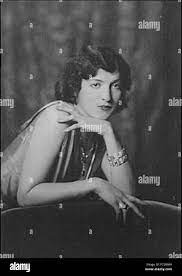
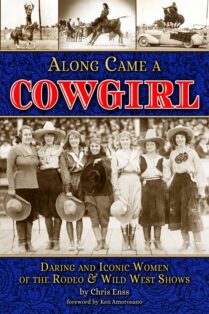

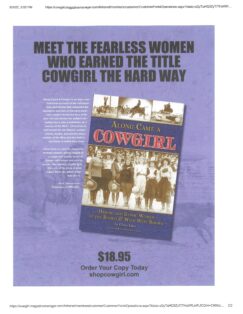

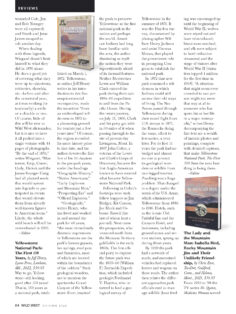
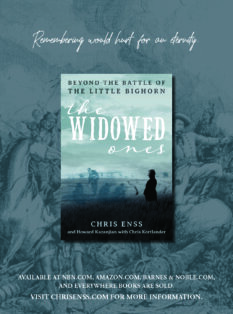
 The Battle of Little Bighorn or the Battle of Greasy Grass, the climax of the Great Sioux War of 1876, is remembered for the resounding, bloody defeat of U.S. forces (led by Lt. General George Armstrong Custer) by Lakota Sioux, Northern Cheyenne, and Arapaho warriors. Enss and co-author Howard Kazanjian (who together wrote None Wounded, None Missing, All Dead: The Story Of Elizabeth Bacon Custer), and their collaborator Chris Kortlander (founder of Montana’s Custer Battlefield Museum) examine this well-studied battle (part of the U.S. theft of Plains Indian lands in the Black Hills of present-day South Dakota) through the lens of Gen. Custer’s widow Elizabeth Custer and six other widows of Custer’s U.S. 7th Cavalry officers, focusing on how the widows processed their grief and attempted to rebuild their lives. Drawing on never-before-seen archival material from the Elizabeth Custer Library and Museum in Garryowen, MT, (particularly correspondence among the seven widows, and between the widows and U.S. politicians, military leaders, and soldiers), Enss and Kazanjian recount how it fell to Elizabeth Custer to break the news of the massacre to the officers’ wives. In the years following, she kept in contact with many of them while answering reams of correspondence and defending her husband’s honor and conduct during the battle. Enss and Kazanjian write that some of the widows struggled with debilitating grief and were unable to process their husband’s fates, while others set out to secure government jobs to supplement meager U.S. army pensions.
The Battle of Little Bighorn or the Battle of Greasy Grass, the climax of the Great Sioux War of 1876, is remembered for the resounding, bloody defeat of U.S. forces (led by Lt. General George Armstrong Custer) by Lakota Sioux, Northern Cheyenne, and Arapaho warriors. Enss and co-author Howard Kazanjian (who together wrote None Wounded, None Missing, All Dead: The Story Of Elizabeth Bacon Custer), and their collaborator Chris Kortlander (founder of Montana’s Custer Battlefield Museum) examine this well-studied battle (part of the U.S. theft of Plains Indian lands in the Black Hills of present-day South Dakota) through the lens of Gen. Custer’s widow Elizabeth Custer and six other widows of Custer’s U.S. 7th Cavalry officers, focusing on how the widows processed their grief and attempted to rebuild their lives. Drawing on never-before-seen archival material from the Elizabeth Custer Library and Museum in Garryowen, MT, (particularly correspondence among the seven widows, and between the widows and U.S. politicians, military leaders, and soldiers), Enss and Kazanjian recount how it fell to Elizabeth Custer to break the news of the massacre to the officers’ wives. In the years following, she kept in contact with many of them while answering reams of correspondence and defending her husband’s honor and conduct during the battle. Enss and Kazanjian write that some of the widows struggled with debilitating grief and were unable to process their husband’s fates, while others set out to secure government jobs to supplement meager U.S. army pensions.